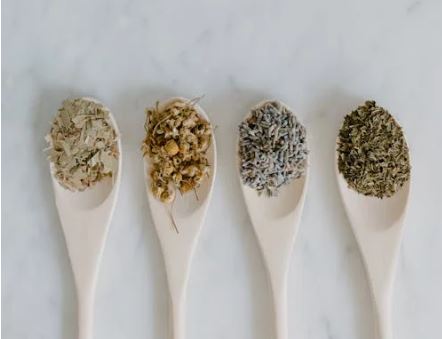Natural Products to Help Alleviate Anxiety
Anxiety is a common experience that can impact daily life, but many people seek natural remedies to help manage their symptoms. While it’s important to consult with a healthcare professional for severe or persistent anxiety, several natural products may provide relief. Here’s a look at some effective options.
- Herbal Supplements
a. Ashwagandha
Description: An adaptogenic herb known for its stress-relieving properties.
Benefits: May help reduce cortisol levels and improve overall mood.
Usage: Often available in capsule or powder form; can be added to smoothies or teas.
b. Chamomile
Description: A calming herb commonly consumed as tea.
Benefits: May help promote relaxation and improve sleep quality.
Usage: Drink chamomile tea before bedtime or during stressful moments.
c. Lavender
Description: Known for its soothing aroma and calming effects.
Benefits: May reduce anxiety and improve sleep.
Usage: Use lavender essential oil in aromatherapy or add dried lavender to pillows and sachets.
d. Passionflower
Description: A flowering plant traditionally used to treat anxiety and insomnia.
Benefits: May help reduce anxiety symptoms and improve sleep quality.
Usage: Available in teas, capsules, or tinctures. - Essential Oils
a. Bergamot
Benefits: Known for its uplifting scent, bergamot essential oil may help reduce stress and anxiety.
Usage: Diffuse in your home or apply diluted oil to pulse points.
b. Ylang Ylang
Benefits: This floral essential oil has calming properties and can help reduce feelings of tension.
Usage: Use in a diffuser or blend with a carrier oil for topical application.
c. Frankincense
Benefits: Often used in meditation, frankincense may promote feelings of peace and relaxation.
Usage: Diffuse or apply to the skin when feeling anxious. - Dietary Approaches
a. Omega-3 Fatty Acids
Sources: Found in fatty fish (like salmon), walnuts, flaxseeds, and chia seeds.
Benefits: May help reduce symptoms of anxiety and improve overall brain health.
Usage: Aim to include these foods in your diet regularly or consider a fish oil supplement.
b. Magnesium
Sources: Found in leafy greens, nuts, seeds, and whole grains.
Benefits: Known to play a role in regulating mood and reducing anxiety.
Usage: Incorporate magnesium-rich foods into your meals or consider a supplement if needed.
c. Herbal Teas
Varieties: Teas such as green tea, peppermint, and valerian root can promote relaxation.
Benefits: The ritual of brewing and sipping tea can also be calming.
Usage: Enjoy a cup of herbal tea during moments of stress or anxiety. - Lifestyle Practices
a. Mindfulness and Meditation
Benefits: Regular practice can reduce stress and anxiety, promoting a sense of calm and focus.
Usage: Set aside time each day for mindfulness exercises or guided meditations.
b. Exercise
Benefits: Physical activity releases endorphins, which can boost mood and reduce anxiety.
Usage: Aim for at least 30 minutes of moderate exercise most days of the week.
c. Deep Breathing and Relaxation Techniques
Benefits: Techniques like deep breathing, progressive muscle relaxation, and yoga can help calm the mind.
Usage: Incorporate these practices into your daily routine, especially during stressful situations.
Conclusion
While natural products can help alleviate anxiety, it’s important to approach them thoughtfully and in consultation with a healthcare professional, especially if you are on medication or have underlying health conditions. Combining natural remedies with lifestyle changes can lead to a more holistic approach to managing anxiety. Always remember that what works best may vary from person to person, so it may take some experimentation to find the right combination for you.

